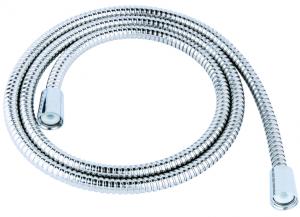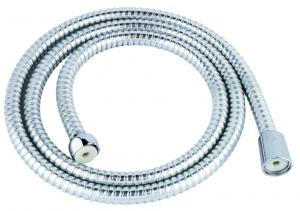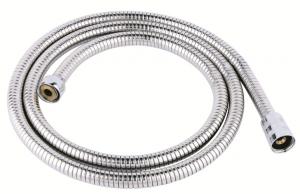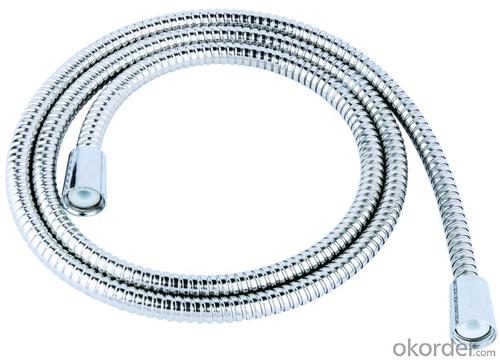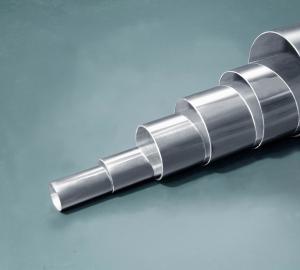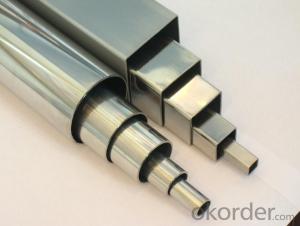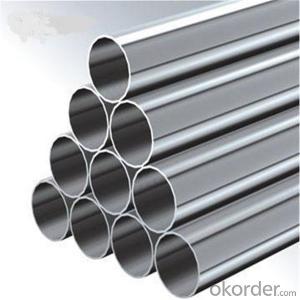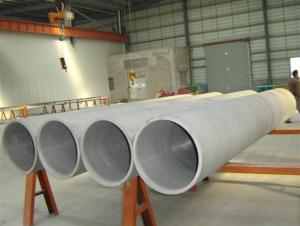stainless steel double lock or single lock shower hose with 58-3A brass nuts
- Loading Port:
- Ningbo
- Payment Terms:
- TT or LC
- Min Order Qty:
- 2500 PCS
- Supply Capability:
- 250000 PCS/month
OKorder Service Pledge
Quality Product, Order Online Tracking, Timely Delivery
OKorder Financial Service
Credit Rating, Credit Services, Credit Purchasing
You Might Also Like
Description of stainless steel double lock or single lock shower hose with 58-3A brass nuts
* 58-3A brass nuts and brass insert
* PVC inner tube or EPDM inner tube
* diamter: 13mm or 14mm
* length: 100cm-500cm
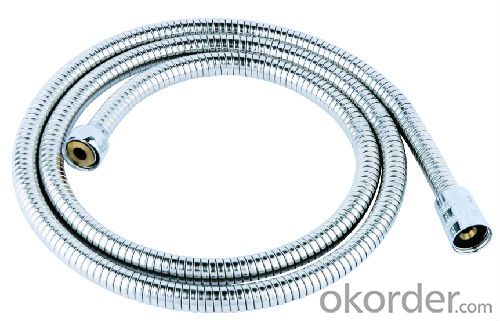
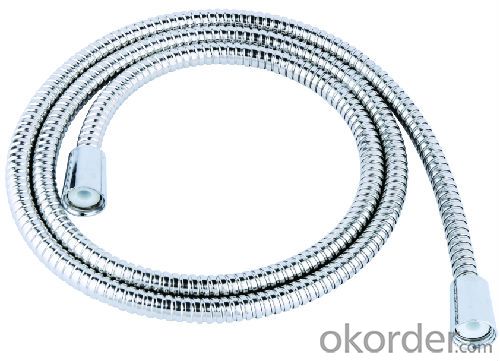
- Q: What is the difference between 304N and 304LN stainless steel pipes?
- The main difference between 304N and 304LN stainless steel pipes lies in their chemical composition and the presence of nitrogen. 304N stainless steel pipes have a higher nitrogen content compared to 304LN stainless steel pipes. Nitrogen enhances the strength and corrosion resistance of stainless steel, making it more suitable for applications in high-stress environments or corrosive conditions. The increased nitrogen content in 304N stainless steel pipes improves their overall performance in terms of strength, hardness, and resistance to pitting and crevice corrosion. On the other hand, 304LN stainless steel pipes have a lower nitrogen content but still possess excellent corrosion resistance properties. These pipes are specifically designed for low-temperature applications where toughness is required. The lower nitrogen content in 304LN stainless steel pipes helps maintain good weldability and formability, making them suitable for various fabrication processes. In summary, the difference between 304N and 304LN stainless steel pipes lies in the nitrogen content, which affects their strength, corrosion resistance, and suitability for different applications.
- Q: What is the difference between 304F and 316F stainless steel pipes?
- The composition and characteristics of 304F and 316F stainless steel pipes are what set them apart. 304F stainless steel is categorized as an austenitic stainless steel, meaning it contains high levels of chromium and nickel. It is renowned for its exceptional corrosion resistance, weldability, and formability. Consequently, it is widely used in various industries, including food processing, chemical processing, and construction. However, 304F stainless steel is not as resistant to chloride corrosion as 316F stainless steel. On the flip side, 316F stainless steel is also classified as an austenitic stainless steel, but it has elevated levels of chromium, nickel, and molybdenum compared to 304F stainless steel. The addition of molybdenum enhances its corrosion resistance, particularly against chlorides and other aggressive chemicals. As a result, 316F stainless steel pipes are suitable for more demanding applications, such as marine environments, where exposure to saltwater and corrosive chemicals is prevalent. To sum up, the key difference between 304F and 316F stainless steel pipes lies in their corrosion resistance. While both are classified as austenitic stainless steels, 316F stainless steel offers superior resistance to chloride corrosion, making it the superior choice for applications where corrosion resistance is of utmost importance.
- Q: What is the difference between stainless steel pipes and PVC pipes?
- Stainless steel pipes are made from a durable and corrosion-resistant material, while PVC pipes are made from a lightweight and cost-effective plastic. Stainless steel pipes are suitable for high-pressure and high-temperature applications, while PVC pipes are commonly used for water supply and drainage systems. Additionally, stainless steel pipes have a longer lifespan and can withstand harsh environmental conditions, whereas PVC pipes may degrade over time and are more prone to cracking or breaking.
- Q: How are stainless steel pipes graded?
- Stainless steel pipes are graded based on a variety of factors to determine their quality and suitability for different applications. The grading system of stainless steel pipes typically takes into account factors such as their chemical composition, mechanical properties, and manufacturing process. One of the key aspects of grading stainless steel pipes is their chemical composition, which refers to the specific elements and their quantities present in the alloy. The most common elements found in stainless steel pipes include chromium, nickel, molybdenum, and carbon. The percentage of these elements affects the corrosion resistance, strength, and durability of the pipes. Different grades of stainless steel pipes have varying compositions, allowing them to be used in diverse environments and applications. Another important factor in grading stainless steel pipes is their mechanical properties, such as tensile strength, yield strength, and elongation. These properties determine the structural integrity and performance of the pipes under different conditions. Higher grades of stainless steel pipes generally possess superior mechanical properties, making them suitable for high-pressure and high-temperature applications. The manufacturing process also plays a crucial role in grading stainless steel pipes. The pipes undergo various processes, including hot rolling, cold rolling, and heat treatment, to shape them and enhance their properties. The quality of the manufacturing process greatly affects the final grade of the stainless steel pipes. Pipes that are produced using advanced techniques and stringent quality control measures are typically assigned higher grades. In summary, stainless steel pipes are graded based on their chemical composition, mechanical properties, and manufacturing process. These grading criteria ensure that different grades of stainless steel pipes are available to meet the specific requirements of different industries and applications.
- Q: Why pickling before cleaning stainless steel pipe oil?
- On the premise of oxide, a good foundation for the formation of passive film is made, which makes the passivation film more compact and improves the passivation effect!
- Q: What is the difference between seamless and double submerged arc welded stainless steel pipes?
- The main difference between seamless and double submerged arc welded stainless steel pipes lies in their production process. Seamless pipes are manufactured without any welding or seams, resulting in a smooth and continuous pipe with uniform strength throughout. On the other hand, double submerged arc welded pipes are created by welding two separate pieces of steel together using the submerged arc welding method. This creates a welded joint along the length of the pipe. While both types of pipes have their own advantages and applications, seamless pipes are generally preferred for their superior strength, durability, and resistance to corrosion.
- Q: Are stainless steel pipes suitable for marine environments?
- Indeed, stainless steel pipes prove to be an excellent choice for marine environments due to their high suitability. With their corrosion and rust resistance, stainless steel emerges as an ideal material for deployment in marine settings, where constant exposure to saltwater, moisture, and other adverse conditions prevails. The inclusion of chromium in stainless steel results in the creation of a protective layer on its surface, effectively preventing the emergence of rust and corrosion. Consequently, these pipes exhibit remarkable longevity and durability, even when subjected to highly corrosive marine environments. Moreover, stainless steel pipes offer outstanding strength and impact resistance, rendering them highly reliable for a multitude of marine applications, including shipbuilding, offshore platforms, and marine structures.
- Q: Can stainless steel pipes handle acidic or alkaline fluids?
- Yes, stainless steel pipes can handle both acidic and alkaline fluids. Stainless steel has excellent corrosion resistance properties, making it suitable for various applications involving these types of fluids.
- Q: What is the chemical composition of stainless steel pipes?
- Stainless steel pipes are primarily composed of iron, with a minimum of 10.5% chromium content. Other elements such as nickel, manganese, carbon, and small amounts of other elements are also present in varying quantities depending on the specific grade and intended application of the stainless steel.
- Q: What are the advantages of using stainless steel pipes in the automotive industry?
- There are several advantages of using stainless steel pipes in the automotive industry. Firstly, stainless steel pipes offer excellent corrosion resistance, which is crucial in automotive applications where the pipes are exposed to various environmental conditions. Secondly, they have high strength and durability, making them reliable for withstanding high pressure and temperature conditions. Additionally, stainless steel pipes have good thermal conductivity, allowing for efficient heat transfer and preventing overheating in the vehicle's engine or exhaust system. Lastly, they are lightweight compared to other materials, contributing to improved fuel efficiency and overall vehicle performance.
Send your message to us
stainless steel double lock or single lock shower hose with 58-3A brass nuts
- Loading Port:
- Ningbo
- Payment Terms:
- TT or LC
- Min Order Qty:
- 2500 PCS
- Supply Capability:
- 250000 PCS/month
OKorder Service Pledge
Quality Product, Order Online Tracking, Timely Delivery
OKorder Financial Service
Credit Rating, Credit Services, Credit Purchasing
Similar products
Hot products
Hot Searches
Related keywords
